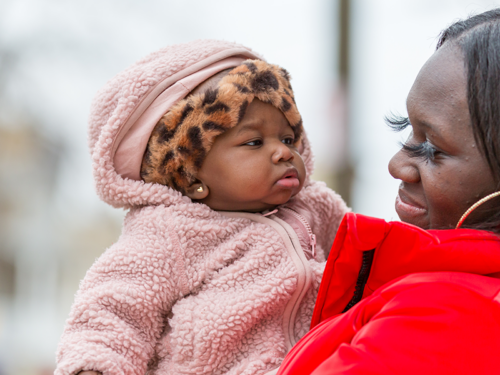

On any given night in Philadelphia, more than 1,000 homeless individuals are sleeping on the street. In search of warmth and shelter, many of them find relief inside the city’s 290 public transit stations. But the refuge is only temporary, and individuals with more serious health issues—often including undiagnosed or untreated mental health conditions—frequently lack access to the care and resources they most desperately need
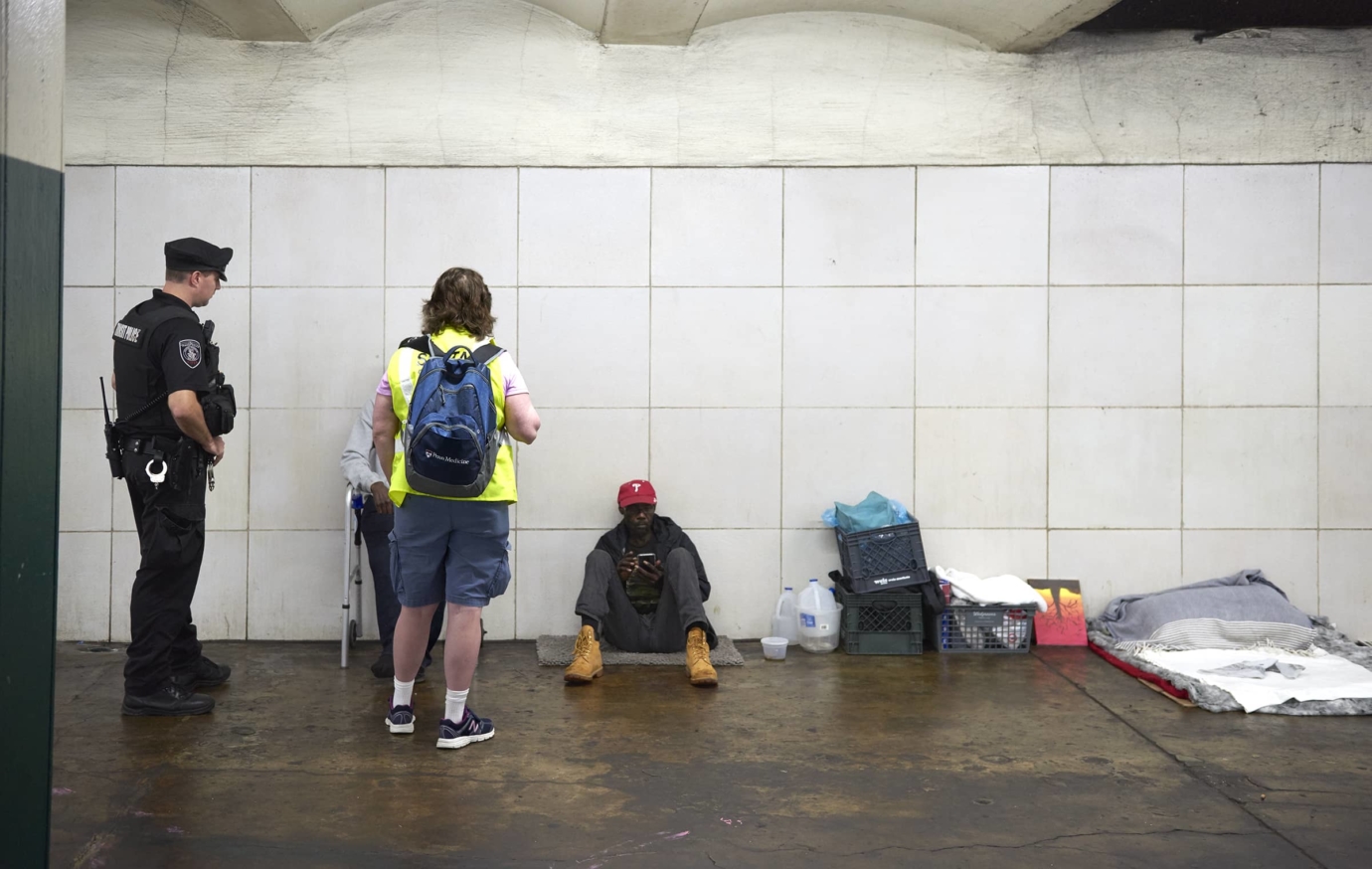
For more than 50 years, the Hall-Mercer Community Mental Health Center of Pennsylvania Hospital has served as a haven for individuals seeking community-based behavioral health care. The Center’s latest partnership with the Philadelphia Department of Behavioral Health and Intellectual disAbility Services (DBHIDS) and the Southeastern Pennsylvania Transportation Authority (SEPTA) has dispatched a team of compassionate behavioral health specialists and community police officers who scour SEPTA concourses and city streets to identify homeless individuals with behavioral health issues and connect them with crisis services, treatment options, shelter, and other resources.
Helena Boyle has over 20 years of experience engaging with Philadelphia’s homeless community. As the program’s senior outreach and engagement specialist, Boyle trains SEPTA police officers with the techniques of her profession.
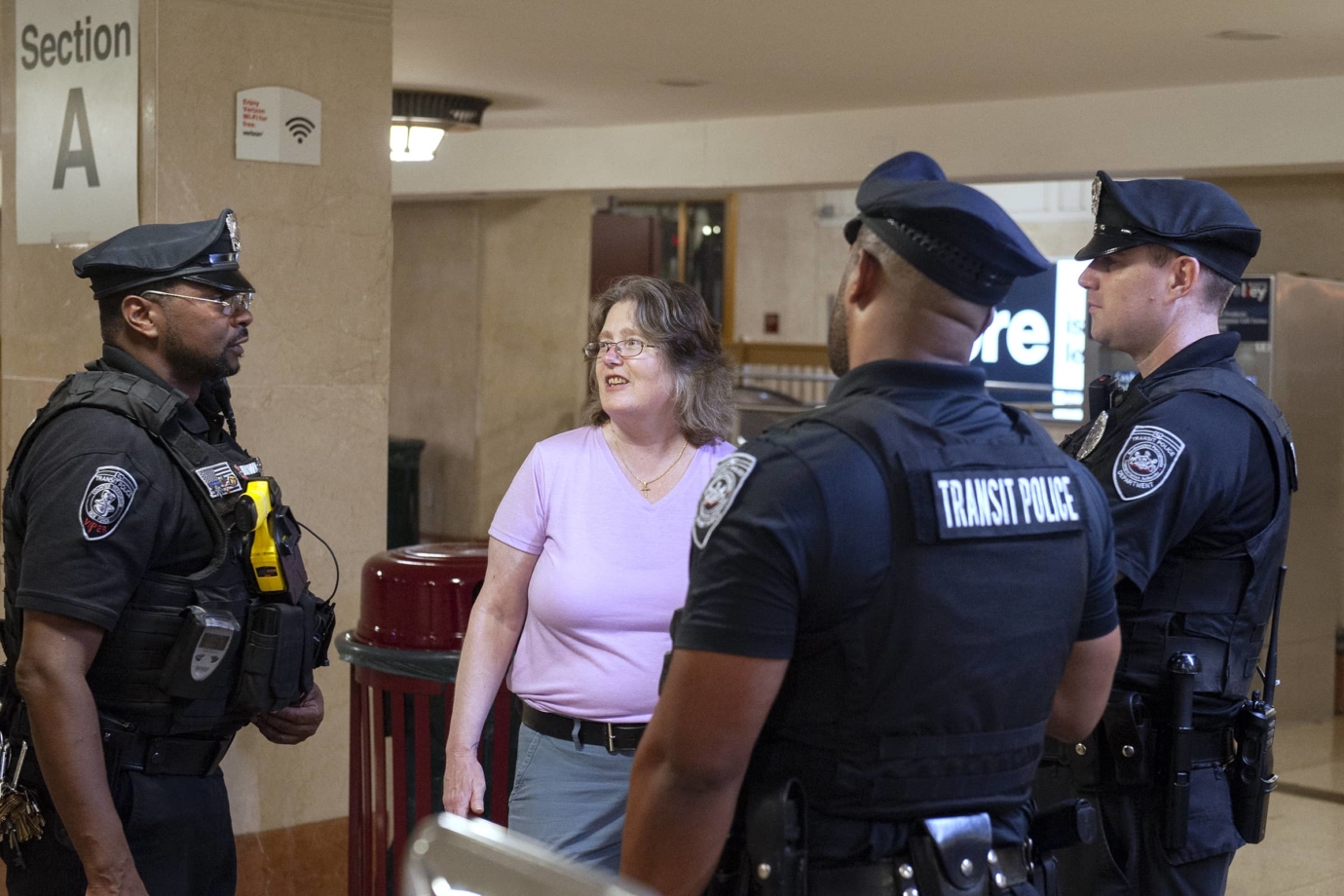
“If you think about it, we’re really in the same business—social work,” Boyle says. “We want people to feel comfortable enough to say, ‘Hi, Sergeant Matt. When you see Helena, can you tell her to meet me here tomorrow morning? I need a pair of socks.’”
She helps them to build trusting, respectful relationships with members of the city’s homeless population. Officers learn to use compassionate communication with homeless and mentally ill individuals—building relationships through conversation, so that they may later be receptive to being connected with the appropriate emergency services and resources. Boyle says the program is a callback to the original, successful model of community policing.
“It’s similar to the way policing was done back in the 1920s and ’30s. Police officers were a lot like social workers; they answered all calls, including calls for the homeless or the mentally ill, and they came out to meet people where they were,” she says. “That’s what we’re trying to do now; we’re meeting people where they are and creating a non-judgmental zone.”
Hall-Mercer’s outreach team provides homeless individuals with everything from socks and shoes to gift cards for food or transportation. Through the program, homeless individuals have an entry point to a variety of Hall-Mercer services, including counseling, drug and alcohol treatment, laundry facilities, showers, and a safe place to stay during extreme weather “Code Red” and “Code Blue” events. The program also connects individuals with community programs that provide IDs, free haircuts, eyeglasses, and more.
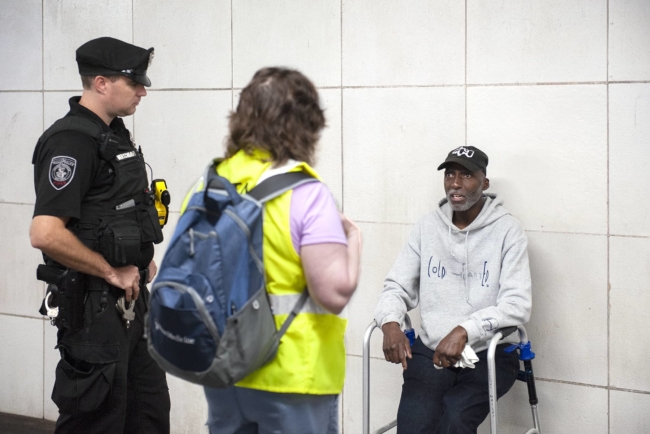
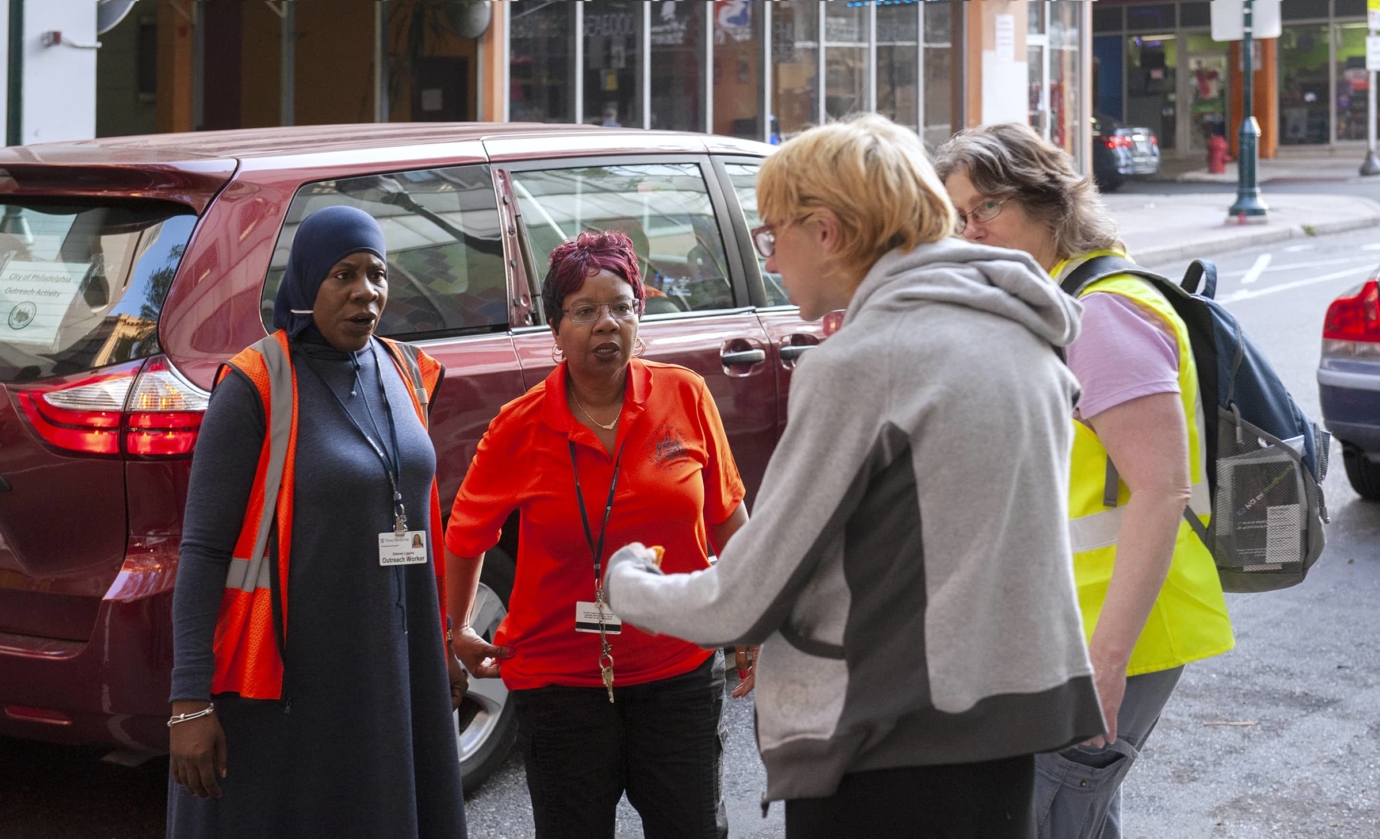
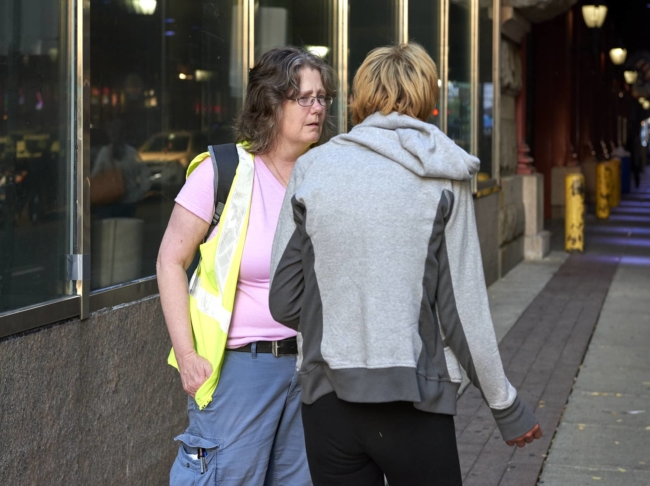
Since the program’s launch, interactions between police and members of Philadelphia’s homeless community have become more positive, and other city agencies have begun to look to Hall-Mercer as a model for community outreach and engagement.
To date, the program has engaged more than 800 individuals facing behavioral health challenges to connect them with community resources and supports, including counseling and drug and alcohol treatment.
For Boyle, the crux of the program is connection.
“When I meet them, they’re usually on the fence and I’m trying to sell them an idea of living life on new terms and how to get there,” Boyle explained. “Eye to eye contact means that they’re respecting me and I’m respecting them, and that we’ve made a connection. That’s the most rewarding thing.”
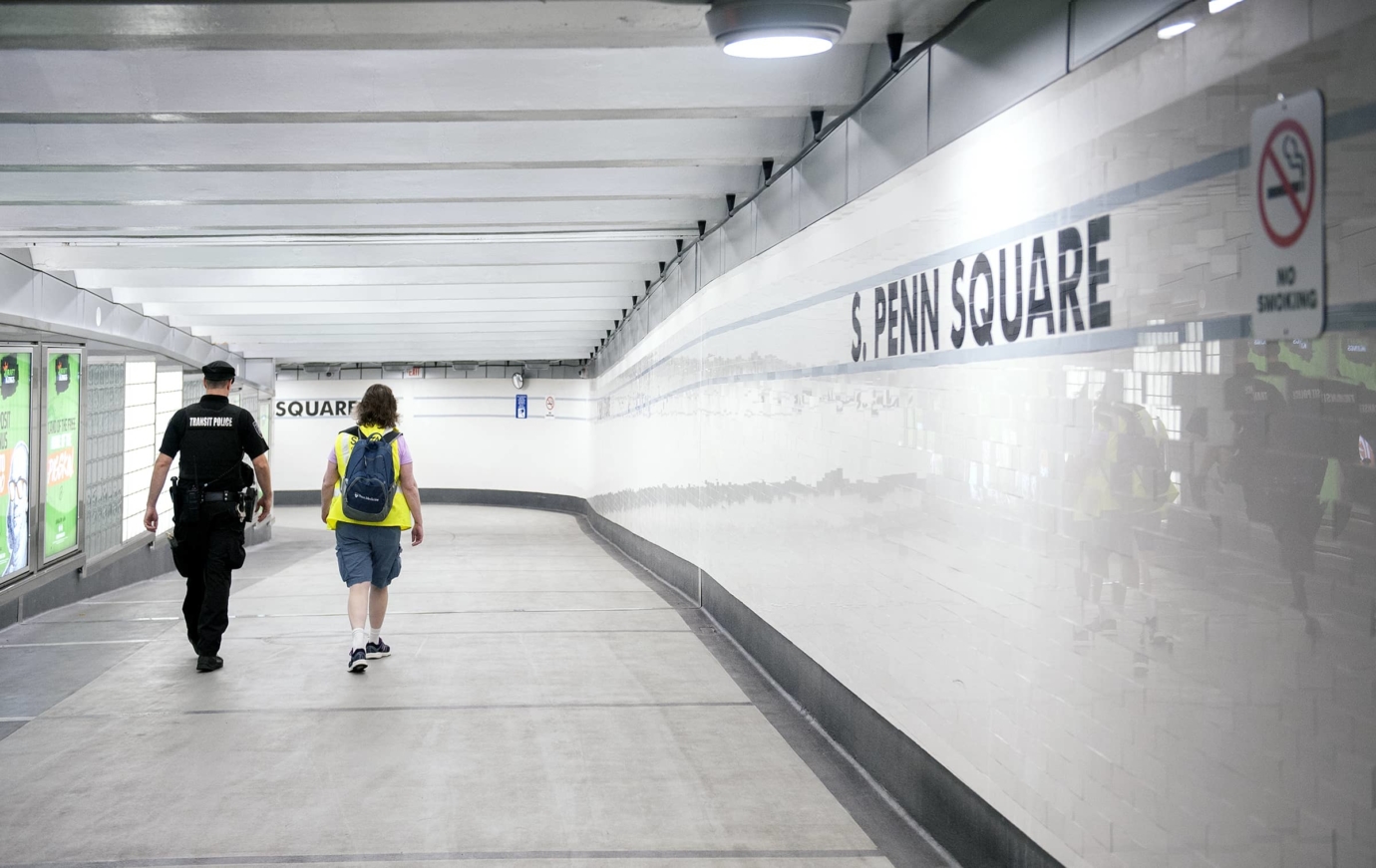


 Where the Homeless Find a Helping Hand
Where the Homeless Find a Helping Hand



